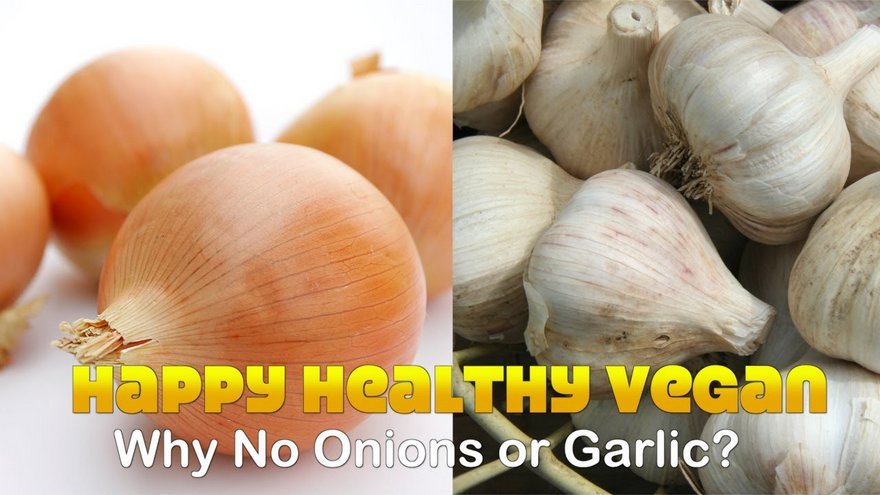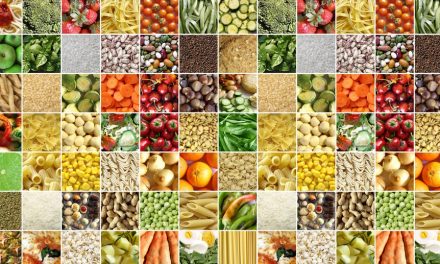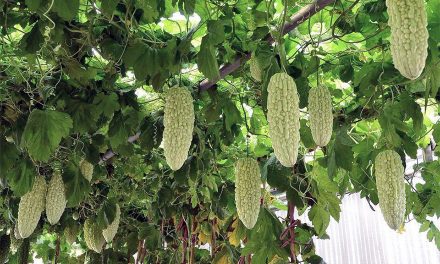Many people across the world use garlic and onion regularly in their cuisine to enhance taste and flavor. These edible plant offerings along with others like shallots, chives, scallions and leeks belong to a genus known as alliums.
Most plants of this group are ornamental though some of them are edible. Several schools of philosophy attach negative qualities to such vegetables. Alliaceous plants are said to create ignorance and diminish intellect. They are also believed to breed sinful attributes such as anger, lust and passion.
[wp_ad_camp_1]
Many Hindu and oriental religious sects grounded in Vedic and Buddhist principles practice staunch vegetarianism. These groups completely discard onion and garlic from their cooking. Let us understand why onions and garlic are said to hinder spiritual growth. In Ayurveda, the holistic medical science of ancient India there is a comprehensive explaination as to why these vegetables get in the way of spiritual stability.
Ayurveda classifies three food categories, namely sattvic, rajasic and tamasic. Each has its own properties. Sattvic foods have positive effects on the body, mind and spirit. They are pure, light, and fresh while promoting body equilibrium, awareness and serenity.
This group includes grains, cereals, legumes, beans, herbs, dairy products like milk, ghee and most fruits and vegetables. Pure Ayurveda diet is popular in the brahmana style of cooking and Vaishanavas, namely followers of Lord Vishnu, Lord Rama and Lord Krishna only cook Sattvic food.
Rajasic foods are okay for the body but should not be consumed in great quantity but in moderation. Moreover the consumption of rajasic food depends on the time of day. These include coffee, tea, chocolate, hot spices, alcohol, nicotine and others. They create mental disturbance, depression, turbulence and anxiety.
Then there are the dull or tamasik foods which are not good for the body or mind. They create weariness and heaviness. Red meat, fish, poultry, eggs etc. are tamasik. Rajasic and tamasic foods have detrimental effects on spiritual practices like meditation and devotional penance. This is why yogis are forbidden from eating onion and garlic which have both rajasic and tasmic qualities.
They root the consciousness more firmly in the mind and don’t let one enter higher planes of thought. A spiritual kitchen will allow rajasmic or tamasic foods as they are unable to offer the same to the deities.
Ancient Ayurveda texts also stated that alliaceous plants produce offensive breath as well as create foul smelling precipitation and body odor. They induce aggravation, apprehension, anxiety and bellicosity, thereby affecting one’s physical, mental, spiritual and emotional equilibrium.
The five major alliums are each said to have a detrimental impact on five of the major organs. Onions are said to cause trouble to the lungs, garlic to the heart, leeks to the spleen, chives to the liver and spring onions to the kidneys. They should not be consumed in the raw form at all. Red onion is said to induce fever, dry cough, moist eyes, runny nose and such maladies. Recent studies also suggest that allium vegetables especially the onion bulb has cardiovascular and cancerous implications.
It is said to aid the lowering of organic bile and lipids in the body which is important for body functions.
Garlic also has a very negative effect on the body. It not just destroys all the harmful bacteria but also goes on to kill the beneficial bacteria. As these are important for the proper functioning of the digestive system and bowel movements, it leads to complications. So, garlic is not scary only for vampires but for human too.
Jokes apart, one should understand the intrinsic qualities of these vegetables in order to plan a better diet.
At the very basic level the three major pillars of the human life force are nutrition or ahara, sleep or nidra and celibacy or brahmacharya. Alliaceous plants are a component of ahara which is introduced in the body as food. When this enters the body it begins to tamper with the dhatus and ojas at the very fundamental level of the body.
This is due to the stress that they pose in the central nervous system. This in turn plays a role in igniting the stimulation. It creates lust due to the aphrodisiac properties that affect the aspect of celibacy and leads man to temptation. On the contrary Ayurveda in fact recommends onion and garlic as a tonic for men who are losing their sexual potency or have high nervous tension during sex.
In ancient scriptures there is a little legend about the origin of garlic and onion. Lord Vishnu as Mohini was serving ambrosia, the nectar of eternal life to the Devas (gods) and the asuras (demons). It was then that he decided to play a trick to deny the demons the sacred nectar.
He handed out the demons ordinary water in place of the elixir. This was detected by the demon called Rahu. He decided to hide between Lord Surya, the solar deity and Lord Chandra, the lunar deity to get his share of the nectar. The two gods realized that it was Rahu sitting between them and at once informed Mohini.
At that very instant the nectar had reached Rahu’s mouth and not his stomach. Upon realizing this, the Lord used his sudarshan chakra and decapitated the demon. Rahu asura’s neck fell on the earth with a thunderous sound. From the demon’s flesh emerged blooms of onions, garlic and other alliaceous plants. Hence, eating onion and garlic is similar to eating flesh.
This is the reason as to why vegetarians are advised not to consume the same. A combination of nectar and demonic flesh is the reason for its manifestation into an aphrodisiac.
Whether you consider the myths of yore or the scientific truths of Ayurveda, both throw light on the fact that onions and garlic do nothing special for the body. Instead they cause much harm. So make sure to use other great spices in your cooking like ginger, fennel, cumin, turmeric, coriander and more, than opting for these two dangerous ones.













But garlic is considered as medicine to cure cholesterol problems.
The comment that garlic is bad for the heart is contrary to scientific facts. Garlic is supposed to aid unclog arteries and also reduce the risk of stroke. Many experiments support this fact. God has created everything in this world with some purpose. Excess consumption of anything is bad for health. There is a saying in Tamil that says if limit is exceeded even ambrosia nectar (amrith) acts like poison. Blindly concluding onion and garlic are bad for health is incorrect.
Garlic is used as medicine in Ayurveda. In Tamil it is clear pounds Lenham. Garlic is mixed with some herbs and given for patients who suffer from certain ailments such as menses problem
Very useful and interesting information on onions and garlic. Most of the Brahman communities avoid eating these two items for the reasons mentioned above.
DRVRao
This is a scientifically unsound, inaccurate, ridiculous article. Hundreds of studies – including randomized, controlled, multi center clinical trials – have demonstrated the physical health benefits of the compounds in these plants.
very useful info. iskon the largest hindu society provides delicious food to kids ang devotees without garlic and onion. let us follow the same and retain our intellectuals
great information thanks for providing vedic knowledge appreciate
Garlic is used as medicine in many Ayurvedic preparations for example: Prasarini Kwath, Astavarga Kwath etc., curatives for Rheumatic diseases. The medicinal properties of Garlic is innumerable.
ver informative and useful.
You information on garlic is not correct. garlic reduces BP and good for heart
this is very useful to me and i will grateful if this continues.
Hari Om
Thank you so much for the inspiring information and free downloads.
May you be blessed to continue providing this service.
Love and Light
this is very true that consuming onion and garlic has negative effect in the body for spiritual health. Satwik food so called partaken in heavy quantity has also bad effect on spiritual health.
Thanks a Lot for giving us Very Suggestive subjects and its useful for all people to know.
Wonderful efforts!!
I am Lakshmikanthan fromoimbatore. I thank you for publishing facts for not to consume onion and garlic. AS it is published in the artcle if one takes onion and garlic when he gets sweating,bad odour comes from hsi body.It is better to avoid the the above said
Can you please quote any source from which you found eating Onions can be cancerous?
I need more details on thus claim as doctors opine that allicin found in garlic and onions in fact prevents cancer.
I feel this article is highly misleading abouts the benefits of consuming garlic and onion.
Please reply to my query in this forum
Thanks
I feel consumption of Paneer Butter Ghee n coconut oil are bad for Heart n some major body organs. Garlic n Onions are Tamasic . I feel any vegetable coming below the Earth lying in mud without air is bad. I don’t know why Mooli Raddish is given so preference especially in North during 13th day Death ceremony n yearly Shradhs. It also gastric.
Nothing is good or bad. It’s how u r body reacts.
But ethically I don’t advocate non-vegetarians. We have got no business to kill an animal n eat when GOD has given number of other tasty alternatives to enjoy
Onions n Garlic add essence n are suppose to be good for heath. Onions are very good n act as anti – sunstoke Garlic has many health benefits
Is there any evidence to support your theory that onions and garlic is bad for you? There are clinical trials that has proven garlic is preventative in heart disease.I do see your point in ayurvedic language but you will need a lot more than this to convince the public to stop using garlic and onions in cooking, even myself.A little of everything goes a long way.
Dear Sir
GOOD DAY
Today’s subject you are issued on public that we found a good knowledge.
I assume that most public are suffering eye sight getting less on young and old stage in frond of computer and mobile due to high frequency negligible radiation, people are suffering head swelling on one side where mobile kept and hearing.
please suggest for that
how to improve his/her health
best regards